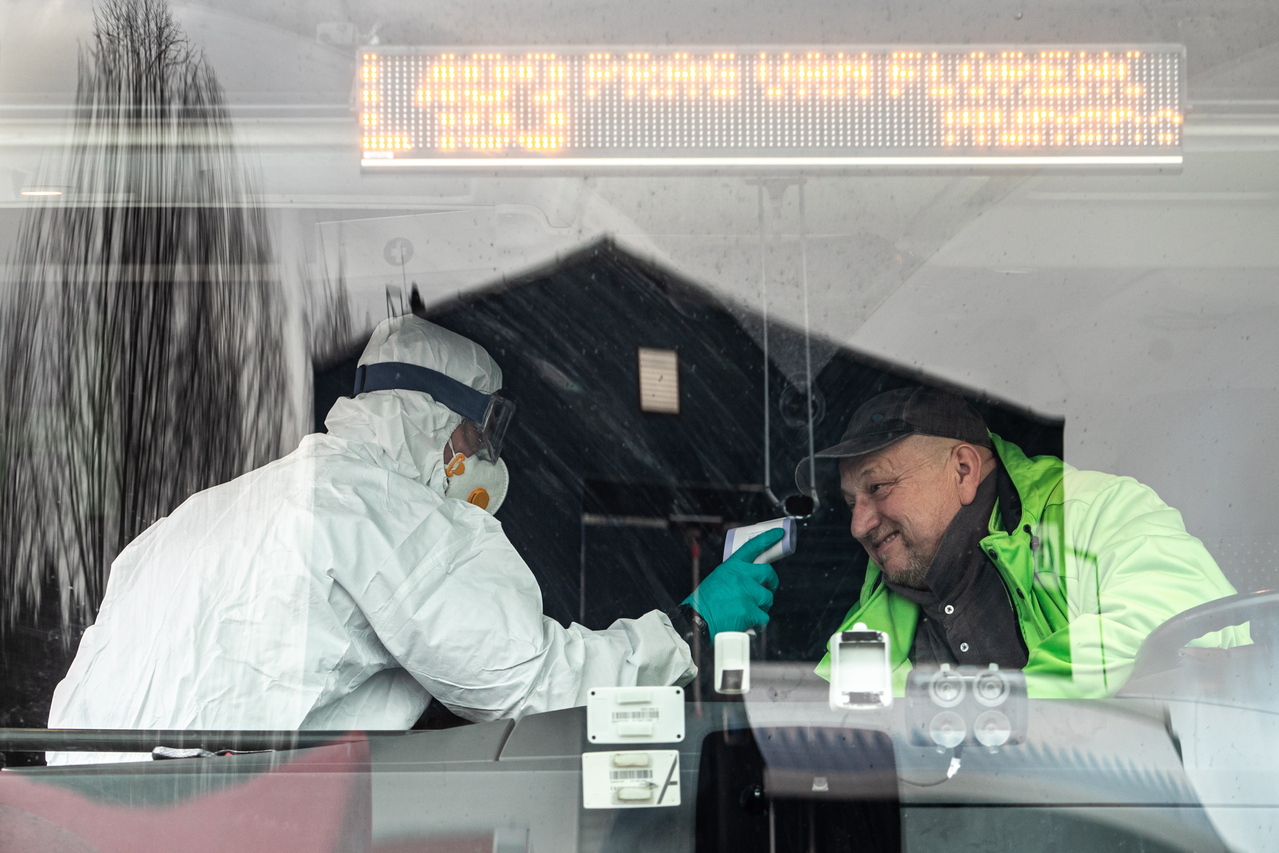East European nations launch coronavirus fightback, some close borders
Sign up now: Get ST's newsletters delivered to your inbox

A police officer in a protective suit checks the temperature of a bus driver at the Rozvadov border crossing from the Germany side near city of Rozvadov, Czech Republic, on March 9, 2020.
PHOTO: EPA-EFE
BRATISLAVA (AFP) - Slovakia and the Czech Republic on Thursday (March 12) said they were closing borders to stem the spread of the coronavirus, while Latvia and Lithuania closed schools and banned mass gatherings.
The Czech Republic, which has 109 confirmed cases of Covid-19 and no deaths, declared a 30-day state of emergency on Thursday and closed its borders to people from 15 "risk countries".
Prague also banned citizens from entering the so-called risk zone, which includes Austria, Belgium, Britain, China, Denmark, France, Germany, Iran, Italy, the Netherlands, Norway, South Korea, Spain and Switzerland.
The Czech Republic will also ban buses, trains and boats from taking passengers across the border starting Saturday, unless they are taking citizens back from abroad or foreigners home.
It has also restricted international air transport to Prague's Vaclav Havel Airport Prague.
Neighbouring Slovakia, which has 21 confirmed cases, said it would close its borders starting Friday to all foreigners except those with a residence permit.
All Slovaks who return from abroad will meanwhile have to be quarantined for two weeks.
Polish citizens will still be allowed to enter Slovakia at border crossings with Poland. Many Poles work in Slovak factories and mines or go on skiing vacations in the Slovak part of the Tatra mountains.
Slovakia said it was banning international bus and train transport and closing international airports. It is also closing schools, which the Czech Republic had already done earlier this week.
Both countries announced on Thursday they would ban mass cultural and sports events.
The Czech Republic has banned gatherings of more than 30 people and closed all gyms, swimming pools, clubs and libraries.
Slovakia announced that wellness centres, aqua parks and bars would close for two weeks but restaurants and cafes will remain open.
'Social distancing'
Baltic state Latvia, which has 16 confirmed cases of the coronavirus and no deaths, declared a state of emergency starting Friday until April 14.
But Latvia's borders remain open and there is no ban on flights or maritime traffic.
All Latvian schools and universities will close. Public gatherings of more than 200 people as well as sports and rehearsals for cultural events will be banned during the emergency period.
Hospitals will permit only medical personnel and patients to enter their buildings with no visitors or family members allowed.
"Our goal is to make people engage in some 'social distancing' from each other," Latvian Prime Minister Krisjanis Karins told reporters.
Fellow Baltic state Lithuania, which has three confirmed cases, also closed all schools, universities and kindergartens and banned mass gatherings with more than 100 participants.
The measures are in effect until at least March 27, according to Prime Minister Saulius Skvernelis.
He added that Lithuania will ban flights from Italy starting Monday. Otherwise its borders remain open.
Estonia declared a state of emergency on Thursday which could be extended until May 1. It closed schools, universities, museums and movie halls and cancelled sporting events.
The government also banned visits to hospitals and prisons.


